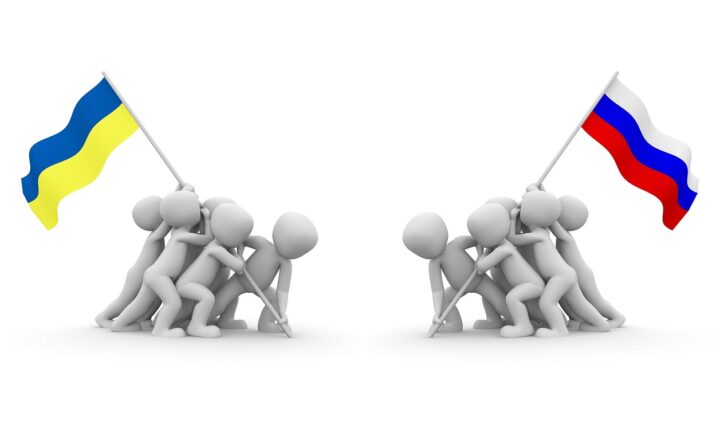
History is not just a collection of dates and names; it is the narrative of humanity’s journey, filled with triumphs, struggles, and conflicts. Conflicts have been catalysts for change, shaping societies and nations while influencing economic, cultural, and social structures throughout the ages.
In this article, we will delve into some of the most significant conflicts that have shaped our world. From ancient battles to modern warfare, each conflict serves as a pivotal chapter in the story of civilization.
1. The Peloponnesian War (431-404 BC)
The Peloponnesian War was fought between the city-states of Athens and Sparta, marking a significant flashpoint in ancient history. This conflict was not merely a military struggle but a complex social and political clash, representing the struggle between democracy (Athens) and oligarchy (Sparta).
The war unfolded in multiple phases, characterized by battles on land and sea, leading to a shift in power dynamics in ancient Greece. The eventual defeat of Athens resulted in a temporary decline of its influence and the rise of Spartan dominance, setting a precedent for future conflicts over governance and power.
2. The Hundred Years’ War (1337-1453)
The Hundred Years’ War was a series of conflicts fought between the Kingdom of England and the Kingdom of France, primarily over territorial disputes and claims to the French throne. Over more than a century, the war saw the rise of national identities in both nations.
This prolonged conflict also ushered in significant military innovations, including the use of the longbow and artillery in warfare. Figures like Joan of Arc emerged from this tumultuous period, symbolizing national pride and resilience. The eventual conclusion of the war solidified the concept of a unified French nation-state, while England began to grapple with internal conflicts that would lead to the Wars of the Roses.
3. The American Civil War (1861-1865)
The American Civil War remains one of the most profound conflicts in U.S. history, fought over deep-rooted issues of slavery, state rights, and economic disparities between the North and South. This internal struggle led to significant loss of life and reshaped the nation’s identity.
The war concluded with the defeat of the Confederacy, leading to the abolition of slavery and giving rise to the Reconstruction era. The aftermath of the Civil War necessitated profound changes in American society, politics, and economics, laying the groundwork for civil rights movements in the future.
4. The World Wars (1914-1918 and 1939-1945)
The two World Wars were unprecedented in their scale and impact, reshaping international relations and leading to the emergence of the United States and the Soviet Union as superpowers.
World War I, often dubbed “The Great War,” resulted in millions of casualties and the dismantling of empires. The Treaty of Versailles, which formally ended the war, paved the way for economic turmoil and resentment in Germany, ultimately contributing to the spark of World War II.
World War II further escalated global tensions, highlighting both the dangers of totalitarian regimes and the consequences of unchecked aggression. It resulted in the establishment of the United Nations and forged new geopolitical landscapes while fostering movements for decolonization and civil rights worldwide.
5. The Cold War (1947-1991)
Post-World War II, the Cold War marked a period of geopolitical tension between the Soviet Union and the United States. Unlike previous conflicts, the Cold War was defined by the struggle for ideological supremacy — capitalism versus communism — rather than direct military confrontation.
This era witnessed several proxy wars, nuclear arms races, and a significant focus on espionage and intelligence. The conflict significantly affected political alignments, global security, and even cultural exchanges. The eventual fall of the Berlin Wall in 1989 symbolized the conclusion of the Cold War and heralded a new world order, opening the door to globalization.
6. Modern Conflicts: Understanding the Contemporary Landscape
The 21st century has not been devoid of conflicts, with shifts in power, terrorism, and humanitarian crises dominating the global stage. Conflicts in the Middle East, including the Iraq War and the Syrian civil war, have highlighted issues surrounding intervention, cultural divisions, and humanitarian concerns.
The rise of non-state actors in these conflicts, such as ISIS, along with persistent issues of global inequality, climate change, and technological warfare, presents a new blend of challenges. The global interconnectedness of today continues to shape the dynamics of these conflicts, prompting nations to rethink strategies and responses.
Conclusion: Reflections on Conflict and Change
Conflicts have been integral to the evolution of humanity, driving change, and reshaping societies. They reflect not only the struggles for power but also the resilience and adaptability of cultures and nations as they navigate through turbulent waters. By studying these historical conflicts, we gain insights into the complexities of human interaction — lessons that are essential in navigating our world today.
Understanding the past equips us to address current and future challenges. As we continue to unearth the layers of history, we also create pathways for a more harmonious future, learning from our shared experiences as we strive to build a better world.







